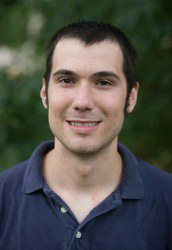Sociology and ESPP PhD student finds that sense of place matters in energy development
December 8, 2020 - Karessa Weir
 MSU Sociology PhD student Mark Suchyta has published research in Energy Research & Social Science which shows that a sense of place can predict beliefs about energy development in Pennsylvania's Marcellus Shale.
MSU Sociology PhD student Mark Suchyta has published research in Energy Research & Social Science which shows that a sense of place can predict beliefs about energy development in Pennsylvania's Marcellus Shale.
In "Sense of place as a predictor of beliefs about energy development: A study of Pennsylvania's Marcellus Shale," Suchyta found that sense of place - the meanings, attachements and satisfaction of a certain setting - are significantly associated with beliefs on the effects of developing the U.S.'s largest natural gas reserve, the Marcellus Shale.
"Findings demonstrated that sense of place, particularly place satisfaction, was significantly associated with beliefs about the effects of Marcellus Shale development, but these relationships varied depending on whether the beliefs were oriented toward effects on respondents’ local environment, community, or economy. Findings also suggested respondents on average found Marcellus Shale development to be generally enhancing to their sense of place, rather than disruptive. Implications and avenues for further research are discussed." wrote Suchyta.
Suchyta joined the Department of Sociology in 2015 after earning degrees at the University of Michigan (BA, 2011) and Pennsylvania State University (MS, 2016). He also had a brief career in social work. He is a dual-major PhD student studying Sociology and Environmental Science and Policy. As an environmental sociologist, he is interested in how humans and the natural world can thrive together. Mark’s dissertation research explores how human well-being is related to environmental quality, experiences with nature, and non-human animals. This consists of bringing together both social and natural science data. He is also working on publications from past research on natural resource management and perceptions of animal agricultural industries. As a passionate instructor, Mark strives to develop effective ways to share everyday applications of sociology and the environmental sciences with others from all backgrounds. When not working on his research and teaching, he spends most of his time with his spouse and three adopted birds at home.

